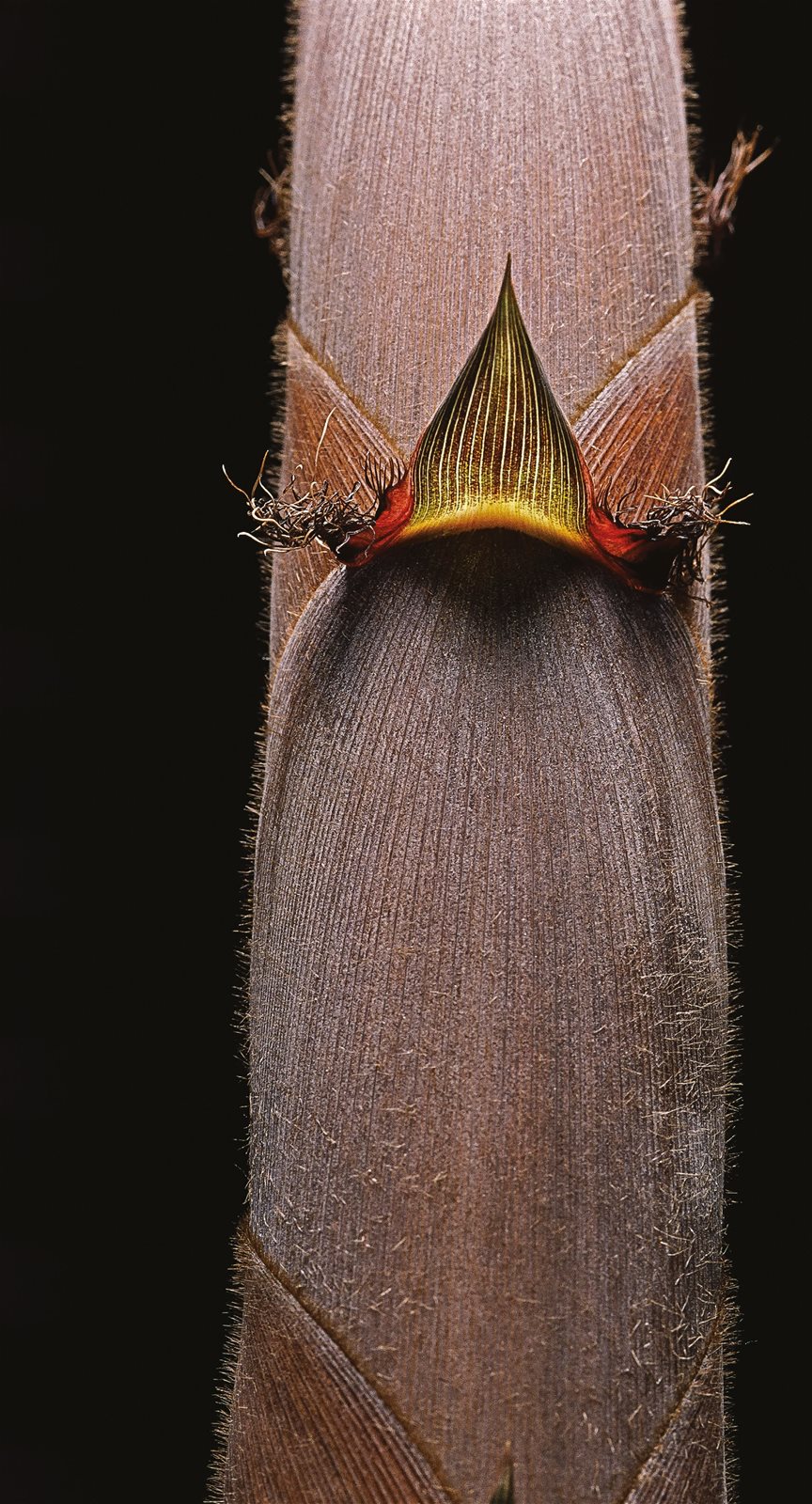
A shoot of henon bamboo (Phyllostachys nigra var. henonis) before flowering
An unusual species of bamboo is about to flower for the first time in over 100 years, which could enable
researchers to find out more about its mysterious regeneration process. Phyllostachys nigra var. henonis, or henon bamboo, flowers only once every 120 years before perishing. The current generation of this species is expected to flower in 2028. However, researchers from Hiroshima University in Japan noticed that a few local specimens had begun to flower early. In a recent study, the researchers found that many of the flowering specimens did not contain any seeds. The team also observed a lack of new culms growing from the root systems of those that had flowered, also showing limited asexual reproduction. This could mean that many dense fields of bamboo may be hard to regenerate, and may disappear and be replaced by meadows.
Henon bamboo was introduced to Japan from China in the ninth century, but scientific recordings of its regeneration process are sparse. Its 120-year flowering intervals were based on ninth-century archival documents, and previous colonies died out right after flowering in 1908, before re-establishing themselves throughout Japan.